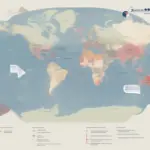Remember that feeling of excitement mixed with a tinge of pre-trip anxiety? You’re about to embark on an adventure, but the thought of juggling flights, hotels, and itineraries can be daunting. Fear not, fellow traveler! This guide is your one-stop shop for understanding the importance of a well-structured travel document and schedule.
Why You Need a Travel Document and Schedule
Imagine this: you’re in a bustling foreign city, your phone battery dies, and you have no idea where your hotel is or what your flight details are. Sounds stressful, right? A travel document acts as your personal travel bible, keeping all your essential information organized and accessible.
Here’s why it’s indispensable:
- Peace of Mind: Knowing you have all your crucial details in one place alleviates stress and allows you to truly enjoy your journey.
- Organization is Key: From flight numbers to hotel confirmations, a travel document keeps everything organized, preventing missed flights or double bookings.
- Offline Accessibility: Technology can fail, but a physical copy of your itinerary ensures you have access to vital information even without internet access.
Creating Your Master Travel Document
Building your travel document is like piecing together a puzzle. Here’s what to include:
1. Trip Overview
- Destination: This seems obvious, but clearly state your destination (e.g., Paris, France).
- Dates: Mention your travel dates (e.g., June 10th – June 17th, 2024).
- Purpose of Travel: Whether it’s a relaxing vacation or a business trip, jot it down.
2. Booking Information
- Flights: Include flight numbers, departure and arrival times, and airline contact information.
- Accommodation: Note down hotel names, addresses, contact details, and reservation numbers.
- Transportation: Detail any pre-booked trains, buses, or car rentals, including booking references.
3. Daily Itinerary
This is where the fun begins! Outline each day with planned activities, including:
- Sightseeing: List attractions you want to visit, their addresses, and opening hours.
- Dining: Note down restaurant names, addresses, reservation details, and any dietary restrictions you may have.
- Free Time: Allocate some time for spontaneity!
4. Essential Information
- Passport and Visa Details: Keep copies of your passport identification page and any necessary visas.
- Travel Insurance: Note down your policy number and emergency contact information.
- Emergency Contacts: List emergency contact numbers for family, friends, and your embassy.
Tips for Creating an Effective Schedule
- Be Realistic: Avoid overpacking your itinerary. Allow for flexibility and downtime.
- Prioritize: Highlight must-do activities and build your schedule around them.
- Consider Travel Time: Factor in travel time between destinations and activities.
- Embrace Technology: Utilize travel apps for itinerary management, navigation, and language translation.
Travel Documents and Feng Shui
Believe it or not, even your travel documents can benefit from a touch of Feng Shui! Opt for a bright, cheerful folder to invite positive energy into your trip. Organizing your documents neatly can also promote a sense of calm and order.
